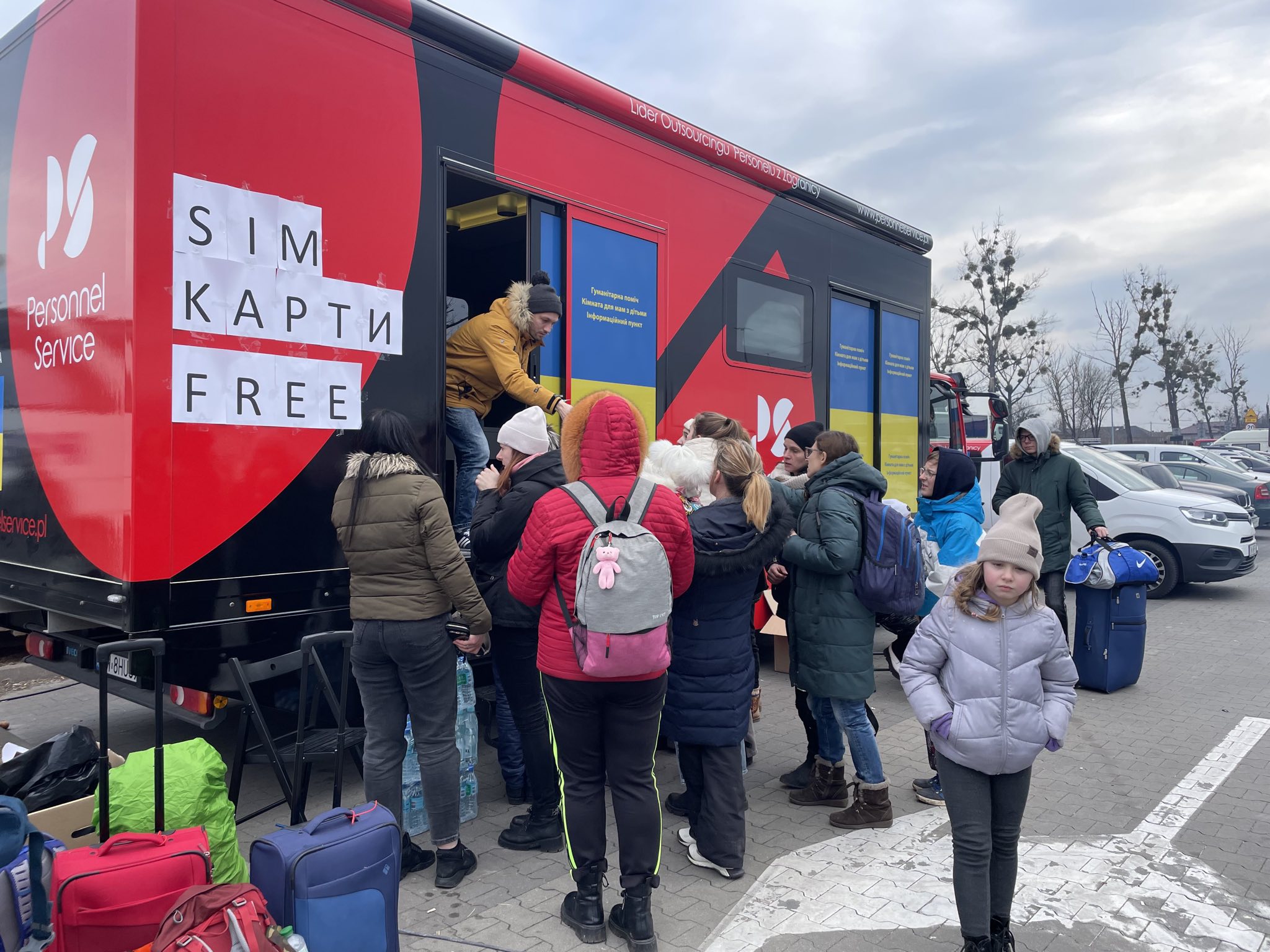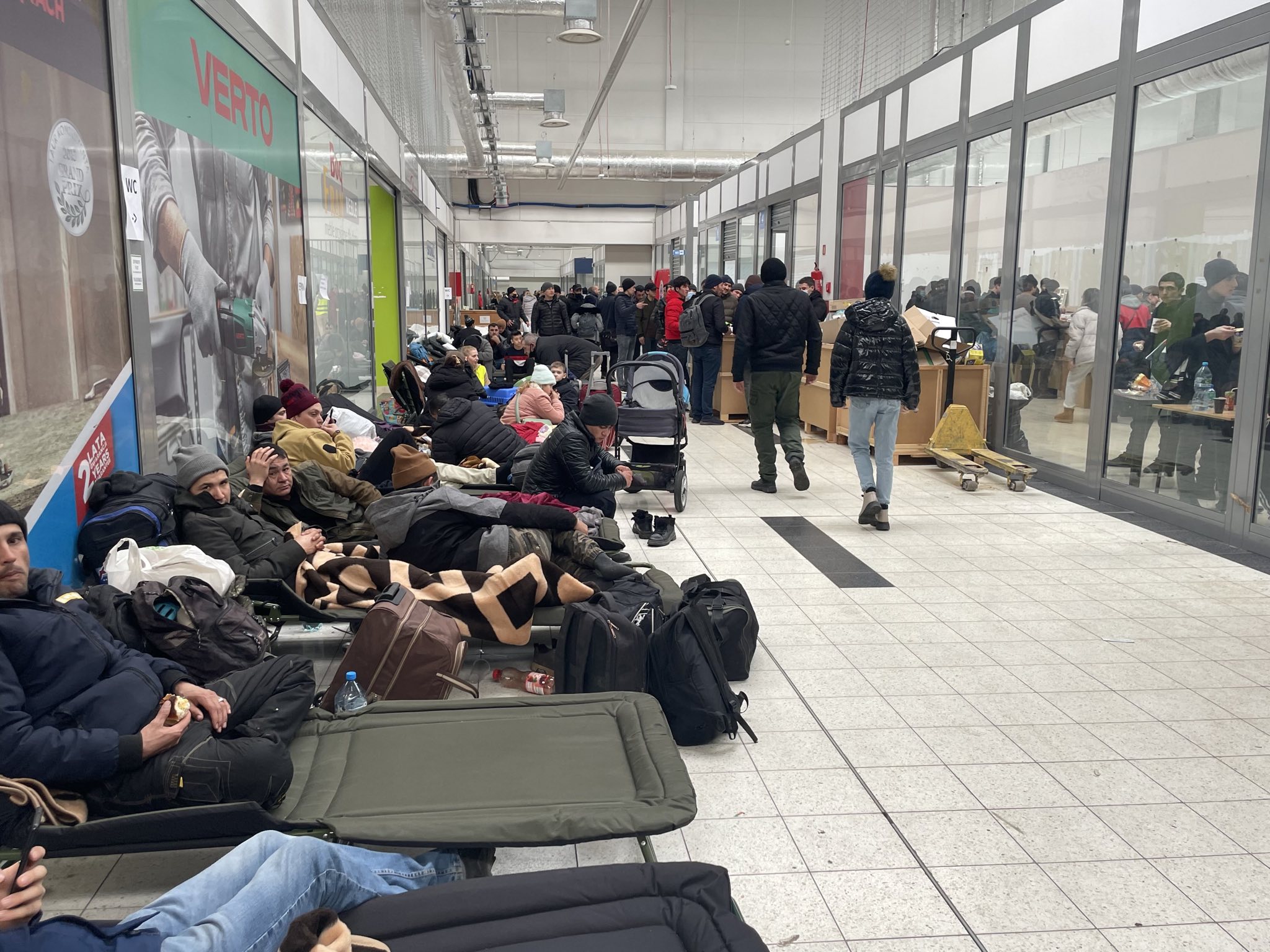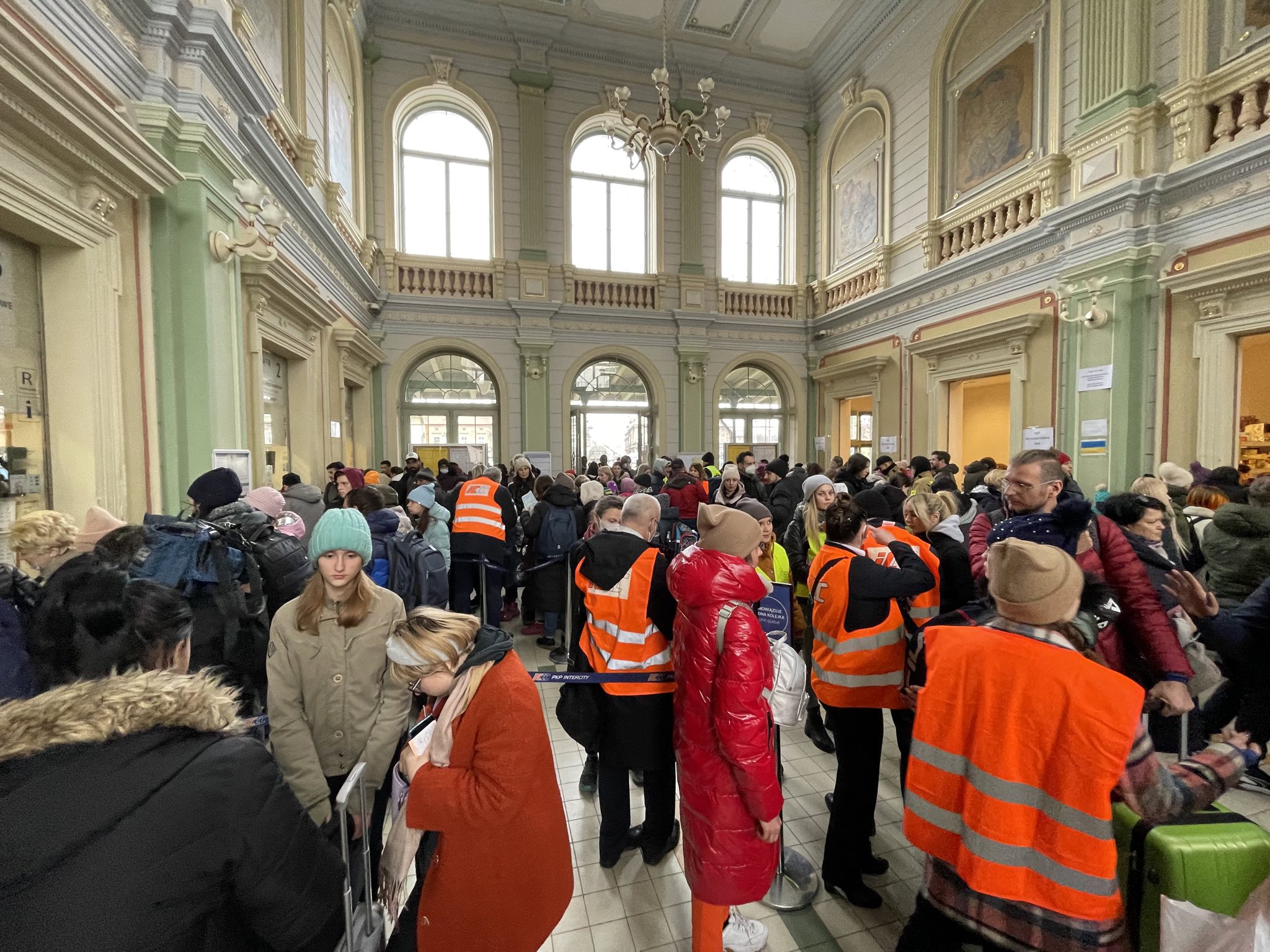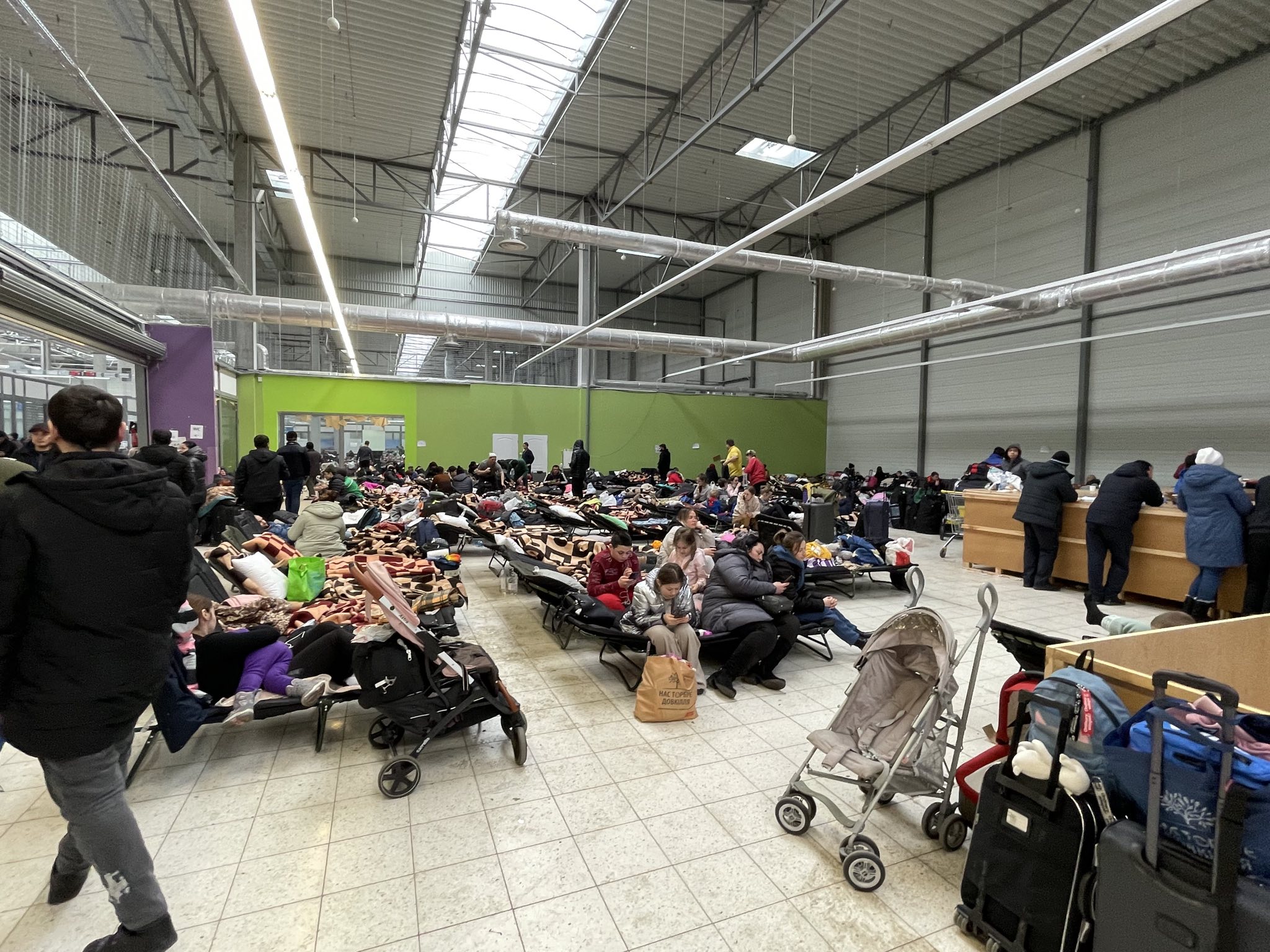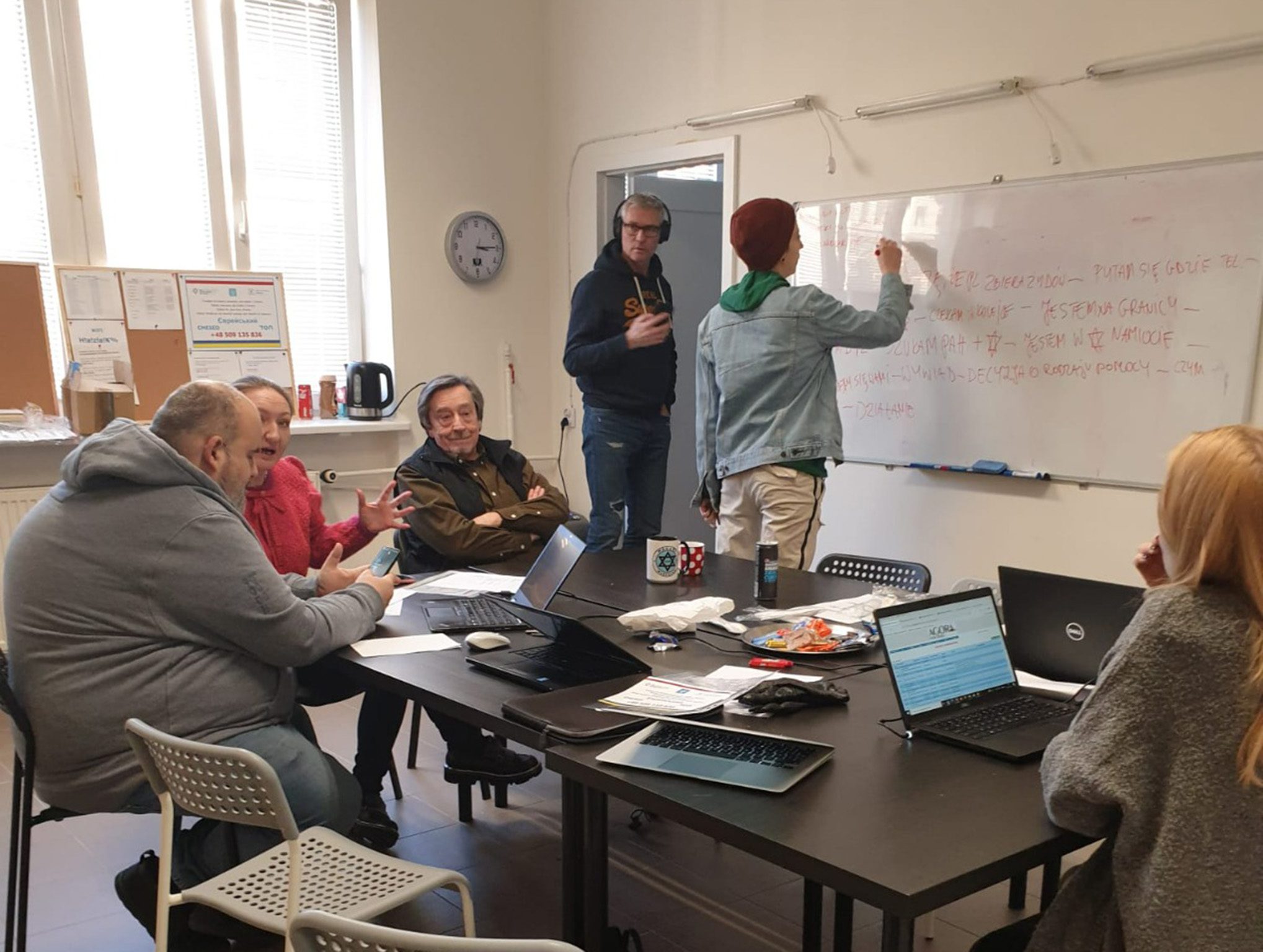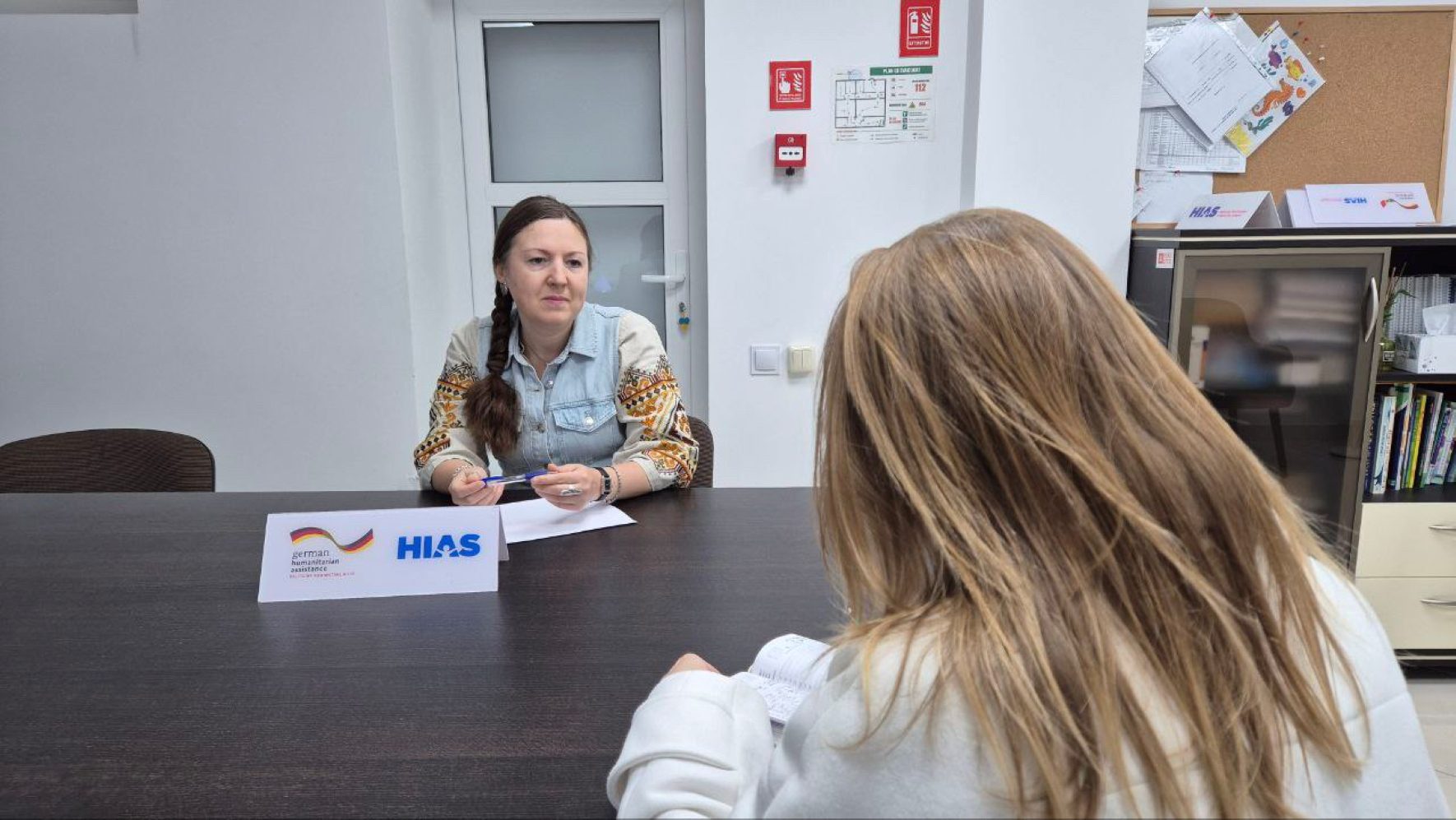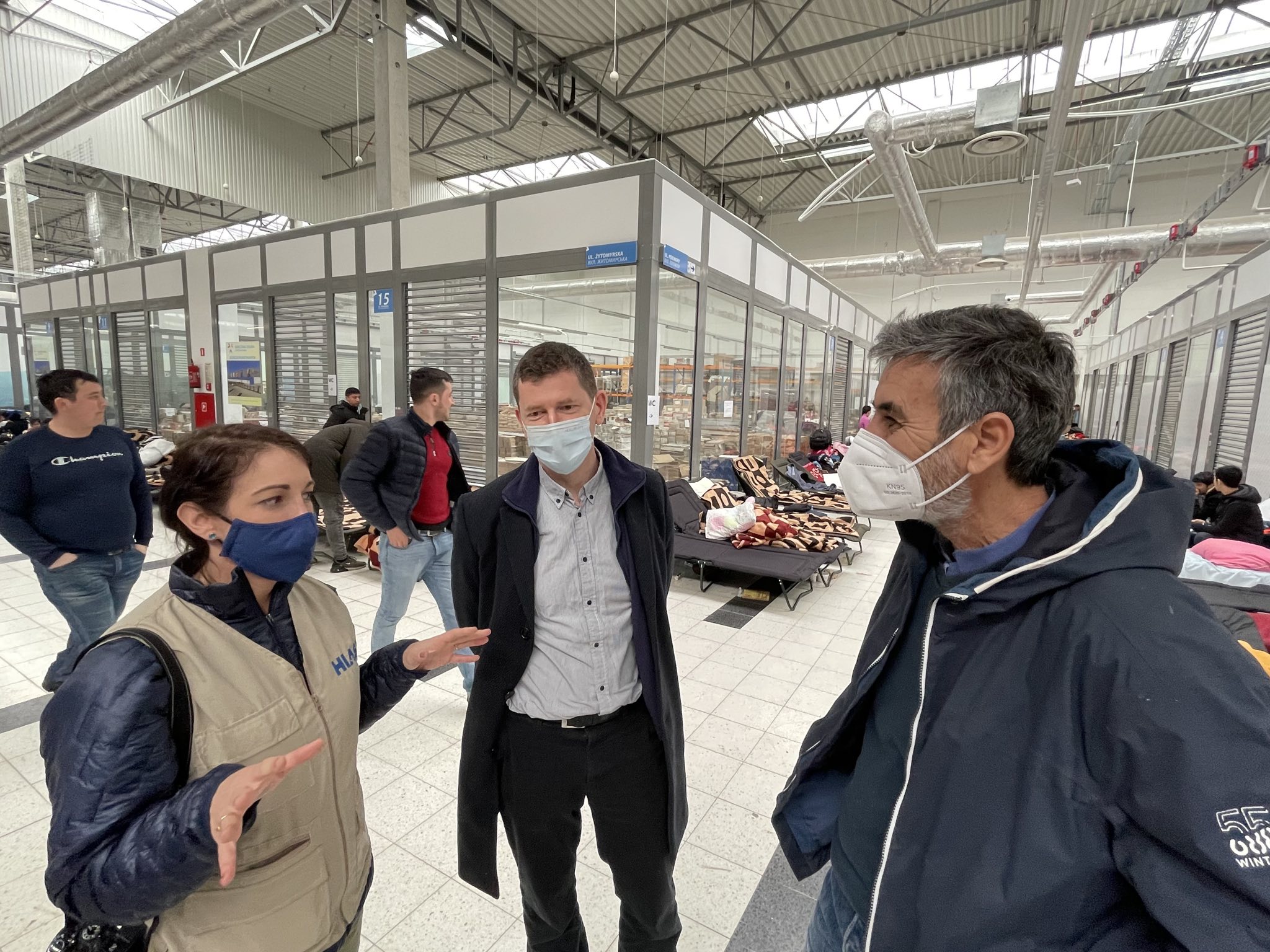
I just returned from a week-long HIAS mission to the Polish-Ukrainian border where my colleagues and I went to see the situation firsthand, meet with local partners, and gather information to help plan our ongoing response.
Even hundreds of miles from the invasion force, things are bad. The number of refugees this war has created is staggering; of the more than 1,700,000 who have fled Ukraine since the invasion started on February 24, over half are in Poland. Families trying to leave Ukraine are kept waiting for ten hours or more in the cold until overwhelmed border guards can review their documents. Birth certificates are accepted since many do not have passports. On the Ukrainian side, husbands and sons are being sent back to fight in the army.
In addition to those who are leaving the country, we know from our colleagues at Right to Protection (R2P), the Ukrainian refugee organization HIAS helped to create, that there are at least as many internally displaced people within Ukraine. In just over a week of war, a population equivalent to that of Brussels or Boston has fled their homes and now needs to find safe places to live.
One of my stops was Przemysl train station, just a few kilometers from the Ukraine border. Every few hours a train packed with refugees arrives, day after day after day. I visited nearby initial reception centers in huge warehouse buildings. There isn’t much privacy, but refugees there have shelter, food, access to primary medical care and a place to sleep. They’re also able to get free mobile phone SIM cards.
As many as two million Ukrainians already live in Poland so some arrivals leave quickly to stay with family and friends. Many countries, including Israel which has more than 20,000 nationals in Ukraine, have consular representatives in these centers. It is estimated that as many as 200,000 Jews in Ukraine could invoke the Law of Return to settle in Israel. The reception centers are also hosting third country nationals from India, Africa, and Central Asian Republics, among them students and families. Without local contacts, they are less able to move on quickly and there have been reports of discrimination against non-Ukrainian refugees.
As hard as it was to witness the impact of war on so many, I was utterly amazed at the mobilization of the European Jewish Community in the face of this unfolding humanitarian catastrophe. Grassroots communities and national organizations across the continent, including in France, Germany, Belgium, Switzerland and Netherlands have responded with open arms and fulsome offers. Jewish youth organizations and others sent volunteers to Eastern European countries to help move refugees away from the border.
At this moment HIAS is working to support three Jewish communities at the forefront of the response to this crisis. In Poland we are working closely with the leaders of the Jewish community in Warsaw, about a five hour drive from the border. I met with Lesław Piszewski its president, Michael Schudrich, the Chief Rabbi, as well as other Polish Jewish organizations in the Crisis Management Group which has come together to work on a shared goal.
The community offices right next to the historic Nożyk Synagogue, are bustling with activity, fielding phone calls from nearby and abroad and working to coordinate volunteers and donations. The Jewish Community of Warsaw owns four properties it normally runs as hotels that are now being used to house refugees, some Jewish, some not. Nearly 300 refugees have already been housed within communities and in private apartments, and the numbers are growing daily.
HIAS is also working with the Jewish Community of Bratislava in Slovakia and the Jewish Community of Moldova. Both are relatively small communities and not used to major logistical challenges like this, but they have been excellent partners. In each place we are helping with the logistics of transportation, accommodation, and determining where refugees can head next.
Poland, Moldova and Slovakia all border Ukraine and are understandably nervous about ongoing Russian military action. As EU and NATO members, Poland and Slovakia have more security, but Moldova has been particularly worried about becoming collateral damage or even being targeted next in the event of a successful Russian conquest of Ukraine. HIAS is helping the Moldovan community act as a staging post to transition fleeing Ukrainians to safer refuge in the EU.
Smart planning has so far facilitated a strong response, but as the Russian army continues into the heart of Ukraine, more and more citizens will be pushed out. Over time, these refugees will be more traumatized than those that managed to leave Ukraine during the early days of the war. The challenge for HIAS and other humanitarian organizations will be how to deal with a longer-term humanitarian catastrophe as hundreds of thousands more arrivals push Poland close to its absorption capacity, as volunteer energy wanes with the passing of time and as funds are used up.
HIAS has much experience to bring to a crisis. We have long helped traumatized refugee communities get the mental health treatment they need, worked with displaced communities to set up systems and norms that avoid gender-based violence and coordinated with Jewish communities and broad civil society coalitions to deal with large scale resettlement on a temporary or — if need be — permanent basis.
We need to keep planning, coordinating and raising funds so that the outpouring of goodwill from the people of Europe can be supplemented and buttressed and, if necessary for those Ukrainians who cannot return home, replaced by a system of refugee resettlement and local integration.
The unity and coordination among different European Jewish communities in this operation is impressive. Often we say “two Jews, three opinions, four organizations, five strategies” but in this case — and helping immigrants has never been the same central organizing principle for European Jews as it has for American Jews — everyone is working together. I was happy, and a little relieved, that the humanitarian response has so far been characterized not only by enthusiasm, but competence and unity as well.
At HIAS we say that we used to help immigrants because they were Jewish and now we help because we are Jewish. For one of the first times in my professional life, I feel that HIAS maxim is being expressed by the heart of Jewish Europe. One Ukrainian refugee told me, “we have been forced to flee our homes, and the Jewish community has been here to welcome us.”
